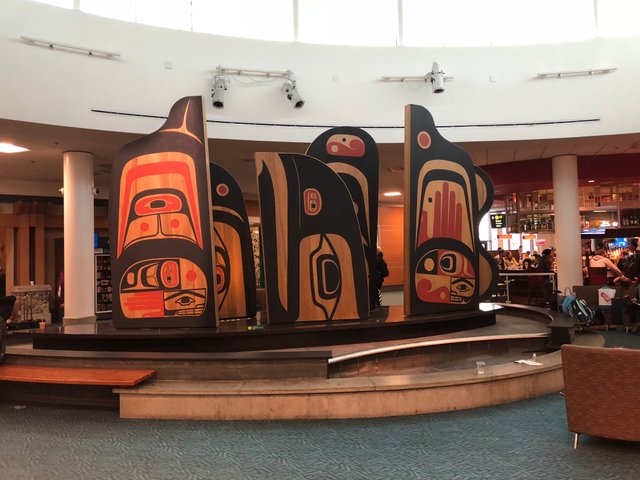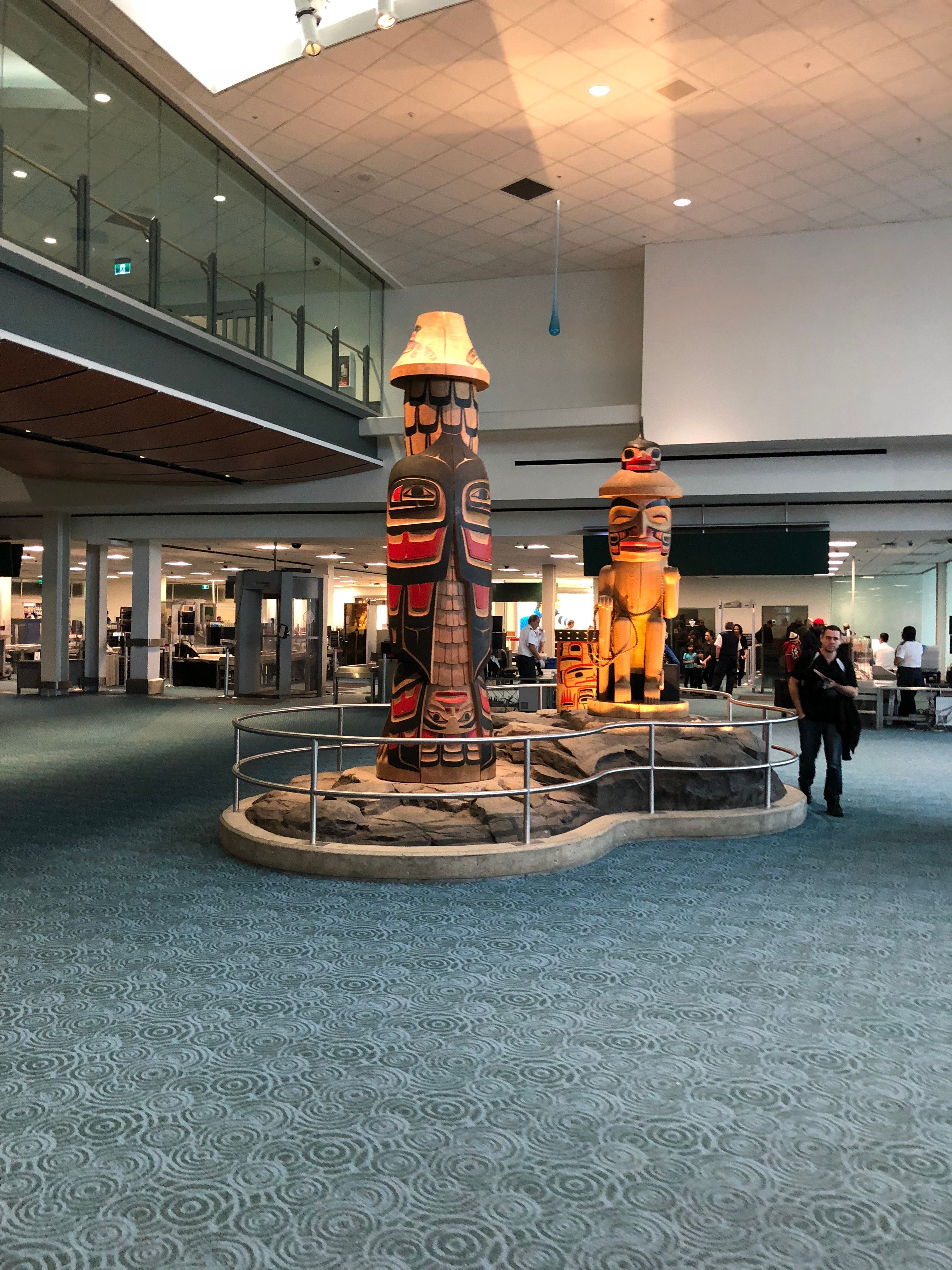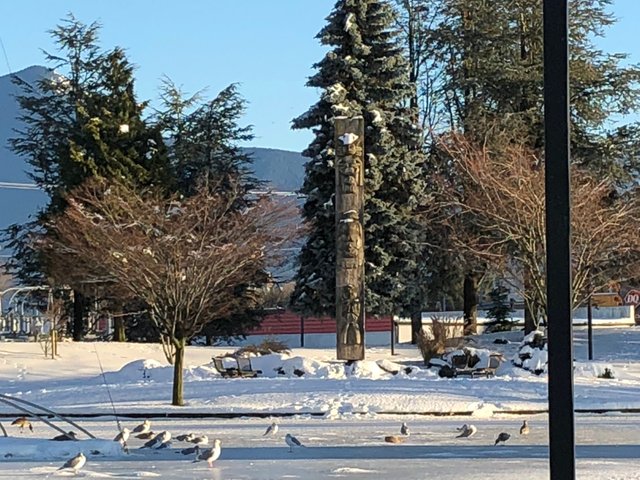This is my first post from my dormant education blog which I wrote back in 2010, so, while the references might be dated, their relevance have not diminished in the least. I could substitute anything happening today and it would not change much, sadly.

Why do we need Aboriginal Education?
The question is pesky, persistent and always whispered in school staffrooms, quietly resurrecting itself when we think that we have answered it and put the issue to rest. Why do we need Aboriginal Education? We have Shared Learnings and are addressing Aboriginal people in Social Studies 7 AND 9. Why do we need Aboriginal Education? We have implemented BC First Nations Studies 12. Why do we need Aboriginal Education? We teach about social justice and preach equality. We bend over backwards to accommodate Aboriginal children. Why do we need it?
This past summer, the summer of 2010, is the twentieth anniversary of the Kanehsatatá:ke Resistance. For me, this anniversary carries a lot of meaning. Before the standoff hit the news every day, before Saulteaux warrior Brad Laroque stared down the Canadian soldier in that iconic image, before non-Natives stoned Mohawk women and children coming off the Mercier Bridge, I had no identity. I had just moved to my Mom’s reserve in the Stó:lō territory, and, while I had been through my Anishnabeg naming ceremony, I had no understanding of who I was or where I belonged. Kanehsatatá:ke changed all that. I became aware, acutely aware of how I was different then the other kids, and where I belonged within my school and society in general.
The following headline jumped out at me recently: Another BC Native tot dies in foster care. Reading this article on theprovince.com, I made the mistake of reading the comments that were left by citizens who had read the article and felt the need to respond. quickbrownfox commented: “1 solution might be to ban adoptions of indian children. they are more than happy to give them up, thinking that they have pulled 1 over on somebody. don't let anything go wrong though, or they are right in there, pointing fingers. the other solution would be to take them all over to stu phillip's place.”1 whatever!!! commented: “why should our tax dollars be 'dolled' out equally? THEY DONT PAY TAXES! Or are you not aware of that fact. Why should there be money given to them unless theyre putting into the pile. Dont get me wrong, there are some very intelligent sucessful aboriginals. Ones that dont cry about how rough theyve had,Ones that dont take advantage whenever they can. They are hard working people that make a paycheck every two weeks. They get back the same as every other working stiff and dont demand everything for free. They deserve no more than me, my children or anyone else that lives here.”[2] (sic) There were many more posts that had been deemed inappropriate by the staff and deleted. There were two posters kfcanada and bingodingo that offered very reasoned and thoughtful comments, carrying on an ongoing debate, refuting the comments made by the negative posters. I am proud of them. And grateful.
During the 2010 BCTF AGM, a Vancouver Sun blogger posted a story about the AGM decision to acknowledge the Aboriginal territory at all BCTF meetings and events. The anonymous posters made all sorts of comments, talking about honouring drunks and other less flattering comments. There was very little in the way of refuting the comments.
In the interior of British Columbia, Teztan Biny is being considered. Taseko Mines Ltd. would like to open a mine. Calling it the Prosperity Project, it would have pumped a potential nine billion dollars into the region over the next twenty-five years. They would have mined copper and gold and use Teztan Biny, also known as Fish Lake, and Little Fish Lake as tailings ponds for their processing. In exchange, the company would have built an artificial lake and stocked it with trout for all the people in the area to enjoy. Teztan Biny supports an extraordinary eco-system that sees an abundance of Lake Trout support a large Grizzly population. As well, Teztan Biny exists as “an area that is a place of worship for our people, a cultural school for our children, and a bread basket that has fed our people for centuries.”[3] The Mine would have destroyed all of this. At least according to the Province’s environmental assessment, which argued that while it will devastate the eco-system, economics must outweigh the environment. The Province endorsed the project. A young Elder from the Peters First Nation, a Stólō person, living near Hope on the Fraser River on the boundary between the Lower Mainland and the Interior of the province, had conniptions when I told her about this event. They’ll kill us. I didn’t understand, but she explained that our sockeye run would have been negatively affected by anything that happens up in that region. The salmon that sustain us go up there to spawn. Destroy that region, contaminate our food supply. To their credit, The Federal government declined to permit this mine project. In the run-up to the decision, the discourse devolved into a war of words that were flavoured with racism and derogatory comments about the laziness of Native people.
The Cheam Band, in the nineties, blockaded the CN Rail and Ferry Island Road to regain control of the land along the Fraser’s river bank, which had been expropriated by the government to create a provincial park. I am told that the Premier couldn’t understand why they were fighting so hard for this tiny strip of rocky shore and weeds. The Cheam, like me, are Stólō. The river is the life blood of the Stólō. It is our communication route, our highway, our food source and our home. I have heard a story that after the flood wiped out everything and X’als made everything ready for humans, he dipped into the river and pulled out two sockeye, transforming them into the Stólō (People of the river). The Government tried to take away the Cheam Band’s access to the river.

Audrey Thompson, in her 2008 paper, There are no sheep in post-structuralism, argues if we don’t recognize something in our own life as being central, Thompson argues, we are not likely to look for it in others. What is central to the lives and experiences of Aboriginal people in British Columbia is not necessarily what is central to the settler peoples of this province. I consider BC First Nations Studies 12 to be a tokenizing Aboriginal course. It is First Nations Studies that looks at BC History, ostensibly from a First Nations perspective. It is reactive though. It presents the before and the after of contact. It presents First Nations reacting to White, or colonial action and policy. What it does not do is look for the centrality of the Indigenous worldview. It encourages us to present local culture but tests our students on coastal culture. It does not try to explore why Teztan Biny is so meaningful to the Tsilhqot’in, or how the river sustains us beyond just being a food source. It opens up the this is what happened and BC is sorry, but it does not address the ongoing inequity between First Nations and non-Native people that allows a government to take away our children more quickly than non-Native children, and it allows the voices of people like quickbrownfox to be legitimized because we are teaching about Native history and culture in school.
Why do we need Aboriginal Education?

Teaching the BC First Nations Studies 12 course last year, I spoke to my students about the Highway of Tears and how no one noticed until the white girl died. I shared with them the difference between status, non-status, on and off-rez, Métis, and Inuit. I taught them how language can have so much meaning and debated the difference between equity and equality, an important part of social justice activism that can have an unequal affect on Native people. I understood it best, reading that Vancouver Sun blog about the AGM’s decision on acknowledging the Aboriginal territory. I had a moment of bravery. It was to write and post the following: “It is unfortunate that the anonymity of the internet allows for stereotypes and miscommunications to flourish. It removes the possibility of open and honest discourse and doesn't allow for the sharing of ideas and the understanding of difference. The idea of an acknowledgement of Aboriginal territory is not a giving in to a special interest group. Historically, the Aboriginal peoples of British Columbia are the only group of people who did not make the choice to come to Canada, to buy into the Canadian way of life. Acknowledging the territory is merely sharing understanding and welcoming a historically ostracized group to the multicultural table. This is not a slippery slope which will lead to all minority groups requiring welcomes; it is merely allowing the Aboriginal peoples of British Columbia the same privilege that is enjoyed by the rest of the province: dignity.”[4]
I could go on and say we need Aboriginal Education so that people understand the history and experience of Aboriginal peoples under colonization. I could argue that understanding the residential school experience allows us to know the intergenerational affect on our students and that knowledge will help us work with our students and their families. I might make the case for Aboriginal education being the means by which we fight institutionalized racism and the belief that somehow Aboriginal people are not as well trained, not as well credentialed, or not as smart as non-Native people. I think the answer is much simpler, however. Why do we need Aboriginal Education?
Because you are still asking that question.
[1] http://www.theprovince.com/life/Another+Native+dies+foster+care/3502808/story.html
[2] Ibid.
[3] Chief Marilyn Baptiste of the Tsilhqot'in, http://www.fonv.ca/news_and_events/newsfishlake
[4]http://www.vancouversun.com/business/School+events+should+begin+with+aboriginal+recognition+teachers+federation/2651917/story.html#ixzz0zJfvIZ47
A concept that may be characterized by the currency of its usage than any consensus as to its meaning and practice.Nice post
Downvoting a post can decrease pending rewards and make it less visible. Common reasons:
Submit
Whatever you do may seem insignificant to you, but it is most important that you do it.
- Mahatma Gandhi
Downvoting a post can decrease pending rewards and make it less visible. Common reasons:
Submit